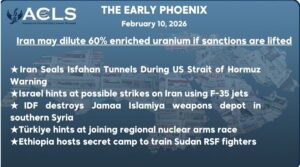Sudan’s recent catastrophic power struggle has escalated to unprecedented levels, causing the country’s collapse, according to the Former US Assistant Secretary of State for African Affairs, David Shinn.
During a public event with various political parties, Abdel Fattah Al-Burhan, Chairman of the Transitional Sovereignty Council and Commander-in-Chief of the Army, suggested that all parties, including himself, step aside. Many observers interpreted this as an implicit refusal to place the army command under civilian control during the transitional period, fueling skepticism about Al-Burhan’s intentions to relinquish power.
A lingering dispute over the subordination of the Rapid Support Forces (RSF) to the Sovereignty Council was meant to be resolved at a meeting on Sunday between Al-Burhan and his deputy, Hamdan Dagalo (also known as Hemedti), who controls the RSF. The army called for Hemedti’s RSF to merge with the regular forces under a single command, which would direct the movements and deployment of troops within 24 months. Hemedti accused unnamed military officials of plotting to remain in power, while the RSF demanded that its officers receive equal privileges to their army counterparts.
On Saturday morning, the RSF attacked the Republican Palace in Khartoum. By mid-afternoon, they claimed to have seized control of the Khartoum and Marawi airports, the palace, a guest house, and various locations in nine Sudanese states. However, the General Command Armed Forces soon denied these claims.
Arabic media reported the first sightings of military planes flying over Khartoum in the early afternoon, with the army asserting control over all bases and airports. A Saudi civilian aircraft was hit during the airport clashes. Chad closed its land borders with Sudan, while Ethiopia called for restraint. The Sudanese army declared that it would not engage in negotiation or dialogue until the RSF was disbanded, branding it a rebel militia. Despite international and Arab efforts to broker peace between Al-Burhan and Hamedti, heavy clashes continued overnight.
By Monday morning, the death toll had exceeded 100, with over 600 injured. By the early evening, the toll rose further, with at least 83 additional people killed. An RSF political advisor claimed to Arabic media that the RSF controlled over 90% of Khartoum and had taken over radio and television stations, which Reuters confirmed during Sunday’s skirmishes. The Sudanese army announced that it had regained control of the Marawi airport and resumed official television broadcasts, asserting that they had previously been hacked.
The RSF claimed the day’s clashes involved the downing of three fighter jets, the destruction of over 200 tanks, and the arrest of the army’s director of the Institute of Intelligence. Another civilian plane, this time Egyptian, was destroyed on the second day of fighting (Sudan, moment by moment report, Al Jazeera).
Recent satellite images revealed the extent of the damage to Khartoum International Airport, with two planes on fire and flames engulfing the burning aircraft. Other photos showed damage to the General Command of the Sudanese Armed Forces building, the Security Service Presidency, and the Ministry of Defense, as well as smoke rising from other structures in Khartoum.
Due to significant contradictions between the narratives of the army and the RSF, the outcome and the reality of the security situation in Sudan remain unclear. Several Arab experts specializing in Sudanese affairs have described the situation as a zero-sum game and proposed three possible scenarios for the country. The first scenario envisions the army leveraging its superior power to eliminate RSF leaders within days. The second scenario involves the RSF achieving a surprise victory by neutralizing the army leadership. The most likely scenario, however, sees Hemedti, the RSF leader, withdrawing his forces from Khartoum to a region that allows him greater freedom of movement.
The Sudanese people remain neutral in this conflict but have called upon the army leaders to transfer power to civilians, stating that this is the only decision they will accept.



